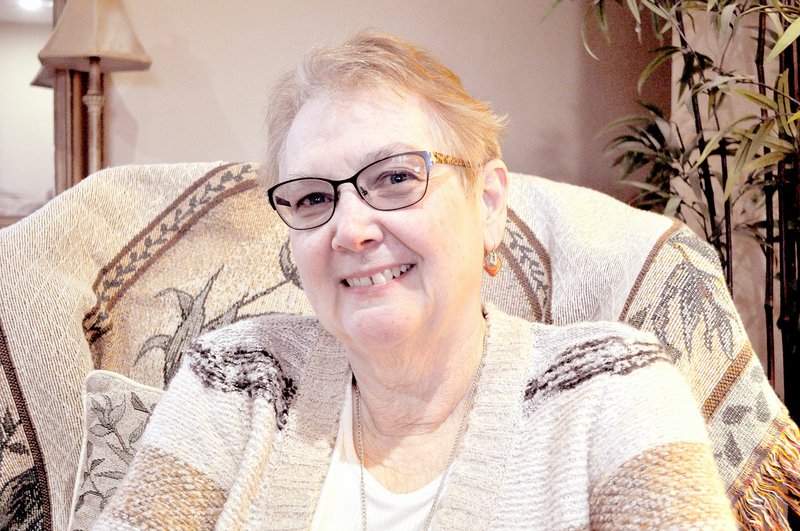Alice Snodgrass of Anderson is a retired home economics teacher and librarian and a gun violence survivor.
She grew up in the small town of Fayette, Mo., and graduated from Fayette High School. She attended one year at Central Methodist University, where her mother was an English professor at the time. Then she went to the University of Missouri at Columbia and earned undergraduate and master's degrees in education, as well as a library science certification.
Her first teaching job was in Salisbury for three years, teaching home economics. Then she taught in Booneville for two years and then in Fayette for 14 years. She said she only had high school students in her classes until she started teaching at Fayette, and then she had some junior high students. Because home economics was an elective course, she had students who wanted to be in the class. She had good equipment and funding and support, she said. She also had a good mix of students. She could have the valedictorian, a special needs student and an exchange student in one class.
"I saw a big, wide area of students," she said.
She was on the statewide committee that changed the name of home economics to Family and Consumer Sciences.
There was a student organization called FHA, Future Homemakers of America. Snodgrass had to get a bus driver's license at one point to drive students around to FHA events. But she never drove anything bigger than a short bus, she noted.
By the mid 1980s, colleges had raised the amount of math and science credits students had to have to get in so much that many students were forced to leave home economics and other electives out of their plans. Snodgrass stopped seeing the variety of students she had seen in the past.
"All the electives suffered in small schools because we could not draw in the upper level students," she said.
She noted there is a shortage of FACS teachers today because of students not being able to take home economics back then. She said the same is true of ag teachers for the same reason.
In the mid-1990s, Snodgrass and her husband, Ted, moved to McDonald County. He took a job as principal at Pineville Primary School, and she became the librarian at McDonald County High School.
"Library science was a good change. Both of my parents read a great deal. We were always in libraries. I enjoyed research. What I enjoyed most was seeing students of all abilities again that I had missed the last few years in my classroom," she said.
She taught a total of 33 years and then retired. She did substitute teach some after retirement.
"I really liked my job and (retiring) was hard to do. Substituting was a way to see some of my education friends," she said.
She is treasurer of the McDonald County Schools Foundation, a position she has held for 10 years.
"I can probably do more with my efforts through it than through substituting," she said.
She was also president of the library board for 10 years and serves on the McDonald County Historical Society Board.
She added as an afterthought, "I'm a multiple gunshot wound survivor."
The domestic violence incident happened in Brookside in 2016, she said. A friend had, in the late 1980s, gotten herself and her children away from an abusive husband. However, her son, who had been abused, had begun abusing his mother as an adult. The woman's daughter asked Snodgrass to come visit the woman and cheer her up. While there, the son, who was supposed to have been out of town, came to the door. After talking to Snodgrass for a few minutes, he pulled a gun on his mother. Snodgrass tried to escape, and he shot her five times. Then he killed his mother and himself. Snodgrass was five minutes from a major trauma center, and that saved her life.
She noted Missouri had dropped the three-day waiting period to get a gun. The man had purchased the gun the day of the shooting.
"It's too easy to get a gun when you're angry in this country," she said. "I'm a grateful survivor. That trauma center did wonders for me, but when I came home it was the people of this county that helped me recover."
She said she believes the availability of guns, whether handguns or rifles, puts everyone in more danger.
General News on 02/07/2019
